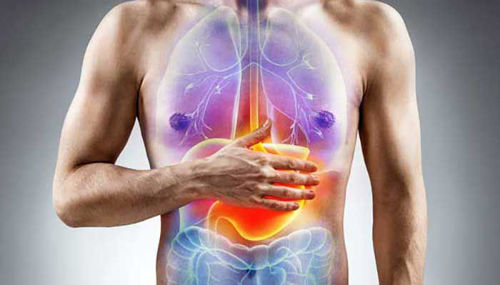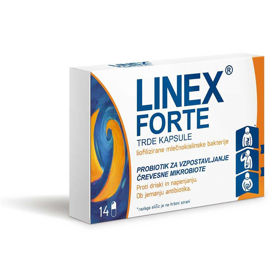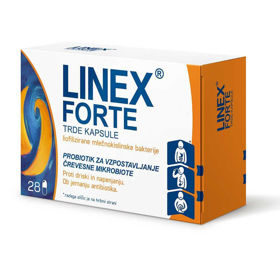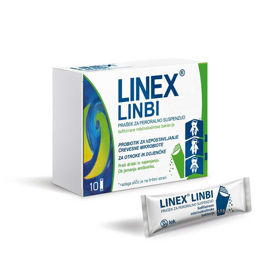Bloating is a common problem - and incredibly unpleasant. A bloated stomach and issues with the fullness of the gastrointestinal tract are highly undesirable and often painful and result from trapped air in the digestive tract. Bloating affects men and women and is more common if you don't chew your food well enough. Bloating can also often be a result of constipation.
BLOAT: What is Bloat? | Causes of bloating | Gases | Digestible content | Hormones | Food Selection | Causes of bloating | Self-help for bloating | Doctor's help | Home Remedies | Questions and Answers | Sources/references
A bloated stomach is, first and foremost, a feeling of pressure, pressure, or fullness, which is often unpleasant. It may or may not be accompanied by a visibly bloated (swollen) abdomen. The feeling of bloating can range from mildly uncomfortable to severely painful. Usually, this condition goes away after a while, but it is a recurring problem for some people.
Picture: bloating affects as much as 10-25% of the population.

Digestive problems and hormonal fluctuations are the leading causes that can cause cyclic bloating. However, if your bloated stomach doesn't go away or you have persistent problems, seek medical help to determine the cause. This is the only way you will be successful in solving this challenge.
The most common cause of stomach pain and bloating in the digestive tract is an excess of intestinal gases. If you get a bloated stomach after eating, you may be suffering from digestive problems. The cause can be straightforward, bloating is almost guaranteed if you may have overeaten very quickly, or you may have an intolerance to certain foods, or the problem is some other condition that causes the accumulation of gas and digestive contents.
Your menstrual cycle is another common cause of temporary bloating. From time to time, however, a bloated stomach can indicate a more serious health condition.
Bloating can be the result of many causes.
1. Gases
Gas is a natural byproduct of digestion, but excessive intestinal gas production can also indicate disturbed digestion. While you usually ingest gas by swallowing air or drinking fizzy drinks, most of this gas escapes through your mouth back into the open air and doesn't get trapped in your intestines. Instead, gas in the intestines is mainly produced by intestinal bacteria that digest carbohydrates in a process called fermentation.
Video content: bloating and gas. How to help yourself?

Suppose there is too much fermentation going on. In that case, it is usually because all the excess carbohydrates were not naturally absorbed earlier in the digestive process before the gut bacteria got there. Perhaps you were even in a hurry at lunch and ate everything too quickly, or you have a specific food intolerance or suffer from a gastrointestinal disease.
Some possible causes of increased gas formation can be the following:
Carbohydrate malabsorption. Many people have trouble digesting certain carbohydrates (sugars). Some common culprits are mainly the presence of lactose, fructose, and carbohydrates from wheat and beans.
You may suffer from an intolerance or a general problem that makes it harder for your digestive system to digest more significant carbohydrates. A nutritionist or specialist can help you formulate a regimen based on your nutritional sensitivities.
Bacterial Overgrowth in the small intestine. This happens when intestinal bacteria from the large intestine are transferred to the small intestine. The Overgrowth of certain bacteria can overwhelm other bacteria and cause a bacterial imbalance. Bacterial cultures must be balanced in the digestive tract; any deviation causes problems with digestion and, consequently, bloating, which is one of the symptoms of an unbalanced intestinal flora.
Functional digestive disorders. IBS (Irritable Bowel Syndrome) and functional dyspepsia are diagnosed when your body, for unexplained reasons, struggles with digestion more intensely than usual. Symptoms very often include gas and bloating after eating. In addition, look out for classic but essential symptoms such as diarrhea, constipation, nausea, vomiting, fever, bleeding, anemia, and unintentional weight loss.
Image: Irritable bowel syndrome is often associated with bloating.

Visceral hypersensitivity. Some people feel as if they are bloated, even though the amount of digestive gas is entirely average. This condition is often associated with irritable bowel syndrome and other disorders involving the nerve pathways from the gut to the brain. In addition, in some people, the hyper-muscle reaction may develop to free up additional space in the abdominal cavity for the resulting gases (abdominophrenic dyssynergia). In the presence of gas, the abdominal muscles relax and protrude outward, even if the actual volume is average.
2. Digestive content
Digestive contents include solids as well as liquids and gases. Digestive content can accumulate in your digestive system - the reasons are often restrictions in the digestive tract or muscle weakness. Any accumulation of digestive contents along the digestive tract will allow less room for the average amounts of gas released during digestion. The limited amount of digestive space makes everything tenser and your well-being accordingly.
The causes for the accumulation of digestive gases can be the following:
1. Constipation. You may have occasional constipation due to diet or lifestyle factors, or you may suffer from chronic constipation due to an underlying medical condition. Accumulated excrement in the large intestine causes recently digested food to remain longer in the intestine, waiting to be emptied. Everything consequently expands to hold this extra volume of digested content, which in turn causes bloating.
Video Content: Bloating? 3D animation.

2. Intestinal obstructions. If bowel patency is not obstructed by stool accumulation, this may indicate a more serious medical complication. For example, the large and small intestines can be blocked by tumors, scar tissue, stenosis, or a possible hernia. In addition, inflammatory diseases such as Crohn's disease and diverticulosis can damage parts of your small intestine and create strictures that severely restrict the passage of digestive contents.
3. Motility disorders or intestinal motility disorders can cause constipation or push the contents to move significantly slower through your digestive tract. These are usually disorders of the muscles and nervous system that detect the content of digestive contents in the digestive tract. Examples include intestinal pseudo-obstruction, a condition that mimics the effects of an obstruction when there is none, gastroparesis, partial paralysis of the abdominal muscles, and pelvic floor dysfunction.
4. Rapid weight gain. Weight gained in the last year or more is often seen as an accumulation, especially in your abdominal areas. If you have gained ten kilograms or even more, this will affect the size of your stomach. As a result, an increased abdomen volume also means less space for normal digestive processes. As a result, even a regular meal during digestion can very often cause a feeling of abnormal bloating. Weight gain is also associated with water retention, making you feel bloated from fluid in your stomach and elsewhere.
5. Lactose intolerance. People with lactose intolerance cannot fully digest milk's sugars (mainly lactose). As a result, they have significant problems after eating or drinking dairy products, including diarrhea, gas, and flatulence. A condition called malabsorption
Video content: What is lactose intolerance? Explanation of dr. Berg.

6. Intolerance to certain foods. If you are intolerant to certain foods, you usually get symptoms a few hours after eating that food or ingredient. Common symptoms include diarrhea, flatulence, and flatulence.
7. Gluten intolerance. It is precisely because of gluten intolerance that you can feel sick after eating gluten; often, the course after eating gluten is such that you become bloated and weak. Gluten intolerance causes similar symptoms to celiac disease, but it is not the same condition. Celiac disease is an autoimmune disease that causes damage to the digestive tract.
3. Hormones
You may have noticed that your belly bloat follows a different cycle – not so much a digestive cycle, but a menstrual cycle. If you see something similar, you are not the only one, as 3 out of 4 women say that they feel bloating in the abdomen before and during menstruation. Bloating is also a common problem during hormonal fluctuations in perimenopause.
Female hormones deserve special mention regarding stomach and gastrointestinal bloating because they can affect bloating from multiple angles.
Video content: estrogens and water retention in the body.

Estrogen is a hormone that causes water retention through its effects. As estrogen rises and progesterone falls, you will notice bloating due to the rise and increased fluid retention. The accumulation above water and the increased uterus volume just before menstruation can also cause a bloated belly. But female hormones also affect your digestive system. Estrogen and progesterone can cause intestinal gas by slowing down or speeding up the overall motility of the gastrointestinal tract. Estrogen receptors in your digestive tract also affect your visceral sensitivity (visceral sensitivity is related to the pain or discomfort of your visceral organs in the abdominal cavity) – making you feel bloated.
4. Selection of food (IMPORTANT!)
The right choice of diet can be the one that can solve complications for people who suffer from moderate to severe constipation. Adding fiber to the diet, especially in cases where constipation is not very pronounced, helps in many cases.
Severe constipation is a more significant complication, where adding fibrous substances can further worsen the condition with constipation. Therefore, before adding fibrous substances in such cases, it is necessary to concentrate initially on improving the motility of the digestive tract. Only then can the diet be corrected by adding dietary fibers.
Video content: How to prevent bloating?

The first advice that Mr. Will Bulsiewicz, gastroenterologist and director of the ZOE medical institution from the USA, always gives to his patients is: to avoid eating unfermented milk (ordinary milk) and unfermented dairy products and also remove all sugars from the diet. Especially artificial sweeteners.
Artificial sweeteners are mostly not digested, but they still hurt the microbiome of the digestive tract, as they cause a significantly increased production of digestive gases. Hence, it is essential to limit the intake of these substances as much as possible.
Non-fermented dairy products contain a lot of lactose; as much as 70% of milk is made from this sugar or carbohydrate. It is also necessary to know that as much as 70% of the world's population is lactose intolerant - excessive consumption of milk and non-fermented dairy products causes side effects, bloating, and digestive problems.
How can you help yourself with bloating?
Lifestyle changes or over-the-counter medications can sometimes help or even prevent excessive gas and bloating. Try the following tactics:
- Dietary changes (more fiber, less fatty foods, avoiding heavy foods, avoiding foods to which you are intolerant)
- Eat slower, take your time
- Eat smaller portions several times a day
- Exercise regularly to reduce the risk of constipation
- Limit the consumption of carbonated drinks
- Take over-the-counter medications to limit gas production in the intestines
- Stop smoking
- don't drink glasses with a straw
- If the cause of the bloating is constipation, take a laxative
- Avoid chewing gum and hard candies
- Fix loose dentures to reduce the amount of air you swallow
When to visit the doctor?
If gas and bloating occur with some of the symptoms mentioned below, this condition may indicate an abnormal or unusual digestive process.
Image: If your bloating problem persists, see your doctor.

See your doctor if you experience gas and bloating associated with any of these symptoms:
- Blood or mucus in the stool
- Changing eating habits did not help
- Chronic or frequent diarrhea, constipation, or vomiting
- Heat
- Loss of appetite
- Over-the-counter medicines do not help
- Persistent bloating, gas, or heartburn
- Significant changes in bowel movements
- Symptoms of bloating interfere with life
- Unexplained weight loss
When you see your doctor, you will likely start by discussing your medical history and history of symptoms. It may help to keep a symptom diary, recording what you were doing or eating when you had symptoms, their severity, and what helped relieve or worsen them.
A physical abdomen examination is usually performed to check for anything abnormal and tender. In case of unexplained problems, the doctor often refers you to further studies, such as a colonoscopy, blood tests, imaging of the upper gastrointestinal tract, and breathing tests.
Questions and Answers
How to get the belly bloat to disappear?
The following good habits and tactics often help to relieve bloating:
- maintaining a healthy diet
- preserving optimal body weight,
- encouraging good bowel habits
- regular exercise
If bloating is caused by certain foods in your diet, avoiding those foods can dramatically help[1].
I was bloating that does not go away - what to do next?
If the bloating persists and the condition does not improve, even with changes in eating habits or bowel movements, it is a good idea to seek medical help. It is necessary to find the reason for this situation and eliminate it. [2].
What to stop unpleasant flatulence naturally?
- Eat slowly.
- Eat less and have more frequent meals.
- Chew your food well.
- Drink fluids tempered to room temperature.
- Increase physical activity during the day.
- If you sit after a meal, sit up straight
- After eating, take a walk and exercise[3].
Sources and references
1. 12 Great Ways to Get Rid of Bloating - https://www.healthline.com
2. 5 Signs Your Bloating Could Be Something Serious - https://www.health.com
3. Gas: Beat The Bloat - https://www.brighamandwomens.org













